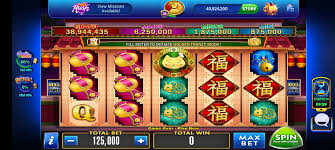Understanding Slot Machine Sizes: A Comprehensive Guide
24
2025 / 01 / 17
Slot machines are a popular form of entertainment in casinos and online gaming platforms, attracting players with their vibrant graphics, engaging themes, and the thrill of potential winnings. However, understanding the odds associated with slot machines is crucial for players who want to make informed decisions and enhance their gaming experience. In this comprehensive guide, we’ll explore how slot machine odds work, what factors influence them, and how they impact your chances of winning.
At its core, the odds of a slot machine refer to the likelihood of winning a particular outcome when you spin the reels. Unlike games of skill, such as poker or blackjack, slot machines are games of chance, meaning that the outcomes are determined by random number generators (RNGs). This randomness makes it essential for players to understand the odds to manage their expectations and gameplay strategies.
The foundation of slot machine odds lies in the use of Random Number Generators (RNGs). An RNG is a computer algorithm that generates random sequences of numbers, which correspond to the symbols on the slot machine’s reels. Here’s how it works:
Independence of Spins: Each spin of the reels is independent of previous spins. This means that the outcome of one spin does not affect the outcome of the next. The RNG ensures that every spin is random, providing a fair chance for all players.
Symbol Mapping: The RNG maps numbers to specific symbols on the reels. When you press the spin button, the RNG generates a number that determines which symbols will appear on the screen. This process happens in milliseconds, making it impossible for players to predict outcomes.
One of the most important concepts related to slot machine odds is the Return to Player (RTP) percentage. The RTP represents the average amount of money that a slot machine is programmed to return to players over time. For example, a slot machine with an RTP of 95% is expected to return $95 for every $100 wagered in the long run.
Long-Term vs. Short-Term: It’s essential to understand that RTP is calculated over a long period and many spins. In the short term, players may experience wins or losses that deviate significantly from the RTP. This is why some players may hit a jackpot while others may not win anything during a session.
Choosing Machines: When selecting a slot machine, consider the RTP percentage. Higher RTP percentages generally indicate better odds for players, making them more favorable choices for those looking to maximize their chances of winning.
In addition to RTP, the concepts of volatility and variance are crucial for understanding slot machine odds:
Volatility: Volatility refers to the level of risk associated with a particular slot machine. High-volatility machines may offer larger payouts but less frequent wins, while low-volatility machines provide smaller, more frequent wins. Players should choose machines based on their risk tolerance and desired gameplay experience.
Variance: Variance is closely related to volatility and describes how much a slot machine’s payouts fluctuate. A machine with high variance may have larger jackpots but can also lead to longer dry spells without wins. Understanding variance helps players set realistic expectations for their gaming sessions.
The number of paylines and the winning combinations also play a significant role in determining slot machine odds:
Paylines: A payline is a line on which a payout will be awarded based on winning combinations of symbols. Traditional slot machines may have a single payline, while modern video slots can have hundreds or even thousands of paylines. The more paylines a machine has, the more opportunities there are to win, but this often comes with higher betting requirements.
Winning Combinations: Each slot machine has a specific set of winning combinations that determine payouts. Understanding the paytable, which outlines the value of each symbol and the combinations that lead to wins, is essential for players to gauge their potential returns.
The house edge is another critical factor to consider when examining slot machine odds. The house edge represents the casino’s advantage over players and is calculated based on the RTP. For example, if a slot machine has an RTP of 95%, the house edge is 5%. This means that, on average, the casino retains 5% of all wagers made on that machine.
Impact on Players: The house edge is built into the game, ensuring that the casino remains profitable over time. While players can experience short-term wins, the house edge means that, in the long run, the casino will always have an advantage.
While slot machines are primarily games of chance, there are strategies players can employ to enhance their experience:

